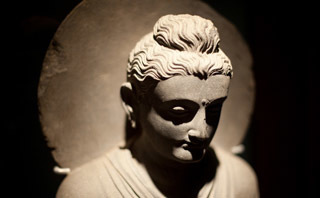Neuroscience tells us the thing we take as our unified mind is an illusion, that our mind is not unified and can barely be said to “exist” at all. Our feeling of unity and control is a post-hoc confabulation and is easily fractured into separate parts. As revealed by scientific inquiry, what we call a mind (or a self, or a soul) is actually something that changes so much and is so uncertain that our pre-scientific language struggles to find meaning.
Buddhists say pretty much the same thing. They believe in an impermanent and illusory self made of shifting parts. They’ve even come up with language to address the problem between perception and belief. Their word for self is anatta, which is usually translated as ‘non self.’ One might try to refer to the self, but the word cleverly reminds one’s self that there is no such thing.
David Weisman
SEEDMAGAZINE.COM
Via ddrrnt



 Your new post is loading...
Your new post is loading...








A good book on the subject is 'The Dalai Lama at MIT' -- a 2008 collection of the papers and research discussed at the Massachusetts Institute of Technology in 2003, a unique dialogue between Buddhist practioners and neurosecientists on the issues of perception, subjectivity, concentration, emotion and perspectivism.